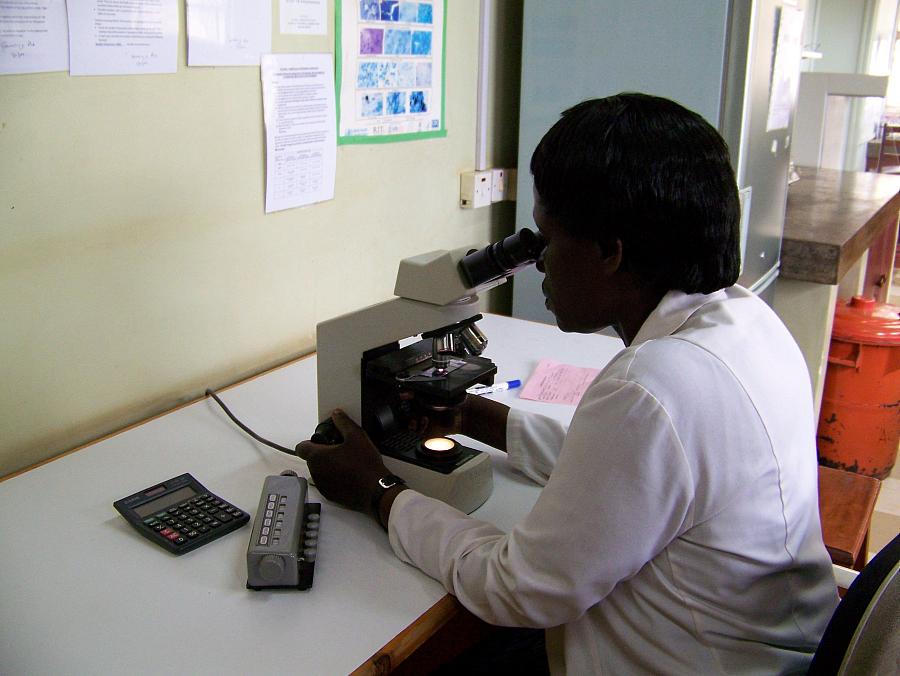Fund Your Project: Pulitzer Center Calls for Global Health Projects

Technician at Mulago Hospital in Kampala, Uganda PHOTO CREDIT: Jill Braden Balderas
The Pulitzer Center on Crisis Reporting is encouraging journalists to report on global health topics by offering grants for reporting. They say they want “ambitious, enterprise reporting projects on global health and the future of the global development agenda.” They go on to say:
We are maintaining our ongoing interest in reproductive health, food security, sanitation, and HIV/AIDS, malaria and tuberculosis. We are also looking for proposals that surface new or neglected issues and perspectives in global health. Projects should engage the public, advance understanding among policymakers, and whenever possible, tie into current policy discussions. The reporting should focus on why and how; descriptive projects are not sufficient.
What does that mean? The Solutions Journalism Network has ideas ripe for picking.
Earlier this year, the Network and the Institute for Health Metrics and Evaluation (where I work) started a partnership to highlight what the Network calls “positive deviants” in global health. Since April, IHME researchers and staff have shared ideas about trends they are seeing in health data that merit more reporting. Here are three possibilities.
Hookworm being wiped out in Cambodia. Stan Biryukov, one of IHME’s data analysts, wrote about how Cambodia has started a program to make sure all children receive hookworm medications. “From 1990 to 2010, hookworm fell from the seventh top cause of ill health to 53rd for Cambodian children aged 5 to 14. As shown in the figure below (see figure here), that’s a 93% reduction in health loss from hookworm—the largest decline in Southeast Asia,” Biryukov wrote.
Children making health strides in China. Rhonda Stewart, IHME’s senior communications officer, wrote about the huge decreases in child mortality and the main causes of childhood death in the world’s most populous country. She wrote:
Between 1990 and 2010, premature mortality in children under 5 declined almost 80%, from 1 million to 213,000. That’s more than 780,000 children who live to see their 5th birthday. Consider diarrhea and lower respiratory infections, two of the biggest causes of child deaths worldwide. Between 1990 and 2010, child deaths from diarrhea dropped by 65% in developing countries, and deaths from respiratory infections dropped by 61%. In China, the numbers were 96% and 89%, respectively. And measles dropped by 98%.
Malaria on the run in Swaziland. Nancy Fullman, an IHME policy translation specialist, wrote about the massive improvements in malaria-related death and disability in this country that sits in the shadow if its much larger neighbor, South Africa. Fullman wrote about how Swaziland has leveraged international partnerships to nearly eliminate the disease:
This is where Swaziland has really excelled, ranging from garnering Global Fund grants for malaria elimination to applying geospatial approaches to find and treat the country’s remaining malaria cases. Launched in 1999, the multi-country Lubombo Spatial Development Initiative (LSDI) also benefited Swaziland as it coordinated malaria prevention efforts with South Africa and Mozambique.
Speaking of partnerships, that is exactly what the Pulitzer Center is seeking. The center is encouraging journalists from different types of media to work together. And if you decide you want to focus on a positive deviant like one of the examples above, you will get to work with two of the best journalists in the business. The call for proposals says:
For journalists interested in critical reporting on apparently successful responses to social problems, editorial guidance will be available from Tina Rosenberg and David Bornstein of the Solutions Journalism Network and The New York Times Fixes blog.
How do you apply? You can fill out a grant application on the center’s website. It’s quite simple, and, if you already have an idea and a sense of other reporting on the topic, it shouldn’t take you more than 30 minutes.
And if you want to brainstorm any ideas with me, send me a note at askantidote@gmail.com or via Twitter @wheisel.

